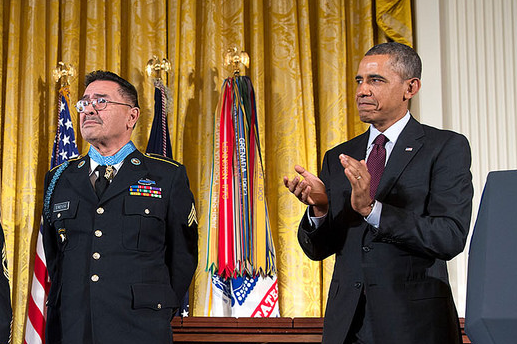Santiago Erevia, once denied Medal of Honor over ethnicity, dies at 69

*He fought in the battlefield then came home to battle the prejudices in the military that valued his sacrifice and valor less than it valued the sacrifices of his white brothers in arms. Rest in peace Santiago Everia. VL
 By Sam Roberts, The New York Times
By Sam Roberts, The New York Times
Santiago Erevia, a Vietnam War veteran and retired mail carrier who had been denied the nation’s highest military honor for 45 years because he was Hispanic, died on Tuesday in San Antonio. He was 69.
The cause was a heart attack, said his wife, Letica Lopez Erevia.
Mr. Erevia, who single-handedly wiped out four enemy bunkers while his comrades lay wounded, said years later that after his heroics had been made known a fellow soldier was asked to draft a citation for the Medal of Honor, the highest military award.
Instead he received the Distinguished Service Cross, the nation’s second-highest award for valor. Mr. Erevia long believed that he had been denied the Medal of Honor because he had survived the firefight. (In fact, recipients are frequently still alive when given the award.)
But a 12-year Pentagon investigation, mandated by Congress, of discrimination in the awarding of the Medal of Honor came to a different conclusion: that the heroism of Mr. Erevia and 23 other Army veterans of World War II and the Korean and Vietnam wars — most of them Hispanic — had been undervalued because of their race, religion or ethnicity and thus denied the medal unjustly.
Click HERE to read more.
[Photo by The White House/Flickr]
Suggested reading


